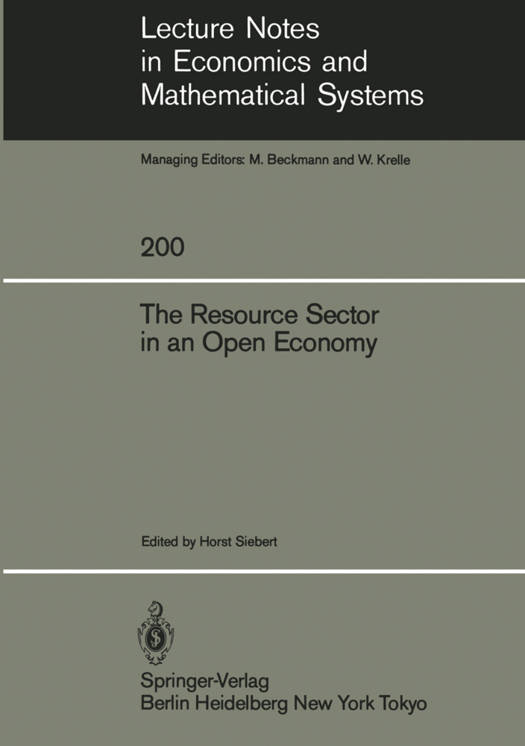
- Afhalen na 1 uur in een winkel met voorraad
- Gratis thuislevering in België vanaf € 30
- Ruim aanbod met 7 miljoen producten
- Afhalen na 1 uur in een winkel met voorraad
- Gratis thuislevering in België vanaf € 30
- Ruim aanbod met 7 miljoen producten
Zoeken
The Resource Sector in an Open Economy
€ 105,45
+ 210 punten
Omschrijving
the economics of exhaustible " assets presents a whole forest of intriguing problems." 1 Harald Hotelling ) The two energy price shocks in 1973/74 and 1979/80 have arosed interest in the new area of resource economics. The affluent societies of Europe, North America and Japan were confronted with the new scarcity paradigm of the "space ship earth" with only a limited supply of natural resources aboard whereas population is growing and the environment can- not accomodate the increasing volume of pollutants. The problem of natural resource scarcity gives rise to the question how resource-dependent economies like European coun- tries and Japan are affected by an increase in resource prices and how they can adjust to rising energy prices. The new para- digm also has focused new interest on the problem of the re- source-extracting firm and of the resource-exporting country. The Hotelling revival of resource economics has given new im- portance to the behavior and to the policy issues of resource- exporting countries.
Specificaties
Betrokkenen
- Uitgeverij:
Inhoud
- Aantal bladzijden:
- 164
- Taal:
- Engels
- Reeks:
- Reeksnummer:
- nr. 200
Eigenschappen
- Productcode (EAN):
- 9783540127000
- Verschijningsdatum:
- 1/11/1983
- Uitvoering:
- Paperback
- Formaat:
- Trade paperback (VS)
- Afmetingen:
- 170 mm x 244 mm
- Gewicht:
- 299 g

Alleen bij Standaard Boekhandel
+ 210 punten op je klantenkaart van Standaard Boekhandel
Beoordelingen
We publiceren alleen reviews die voldoen aan de voorwaarden voor reviews. Bekijk onze voorwaarden voor reviews.










